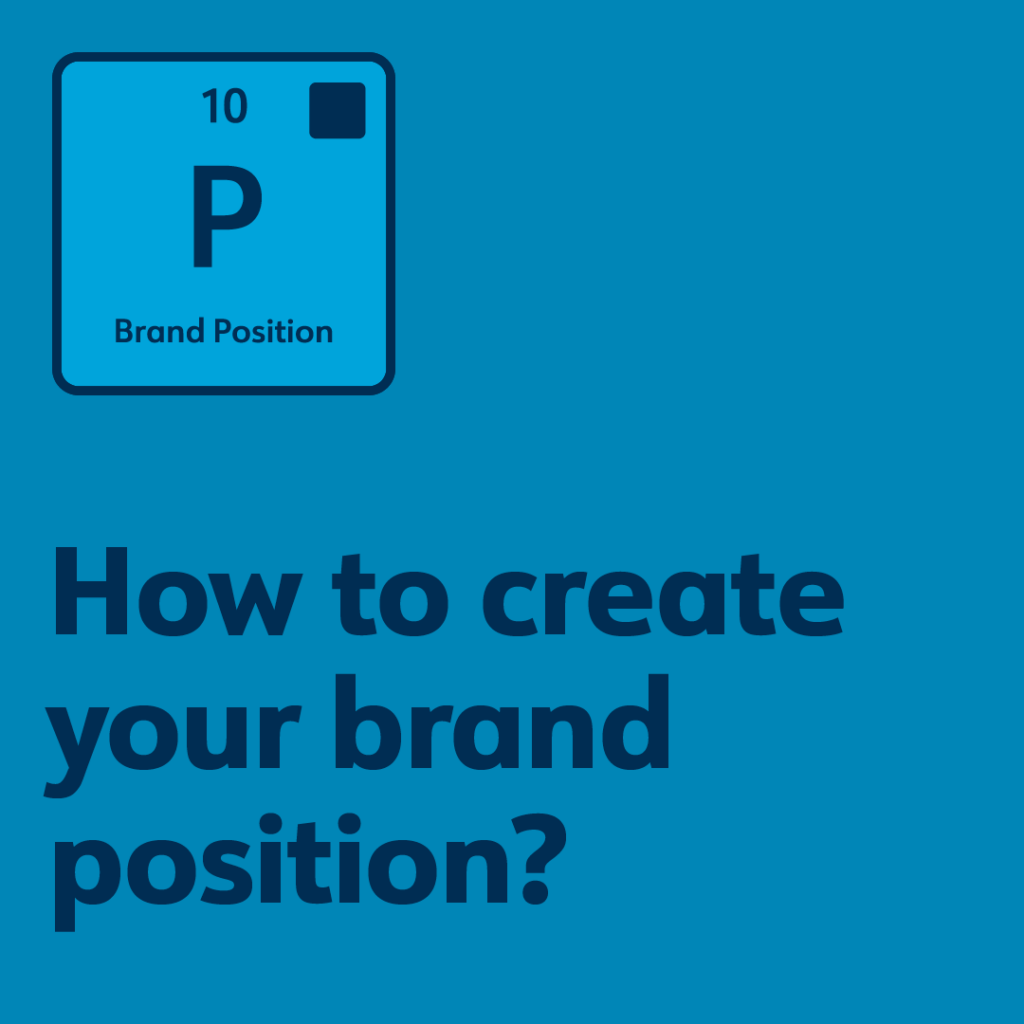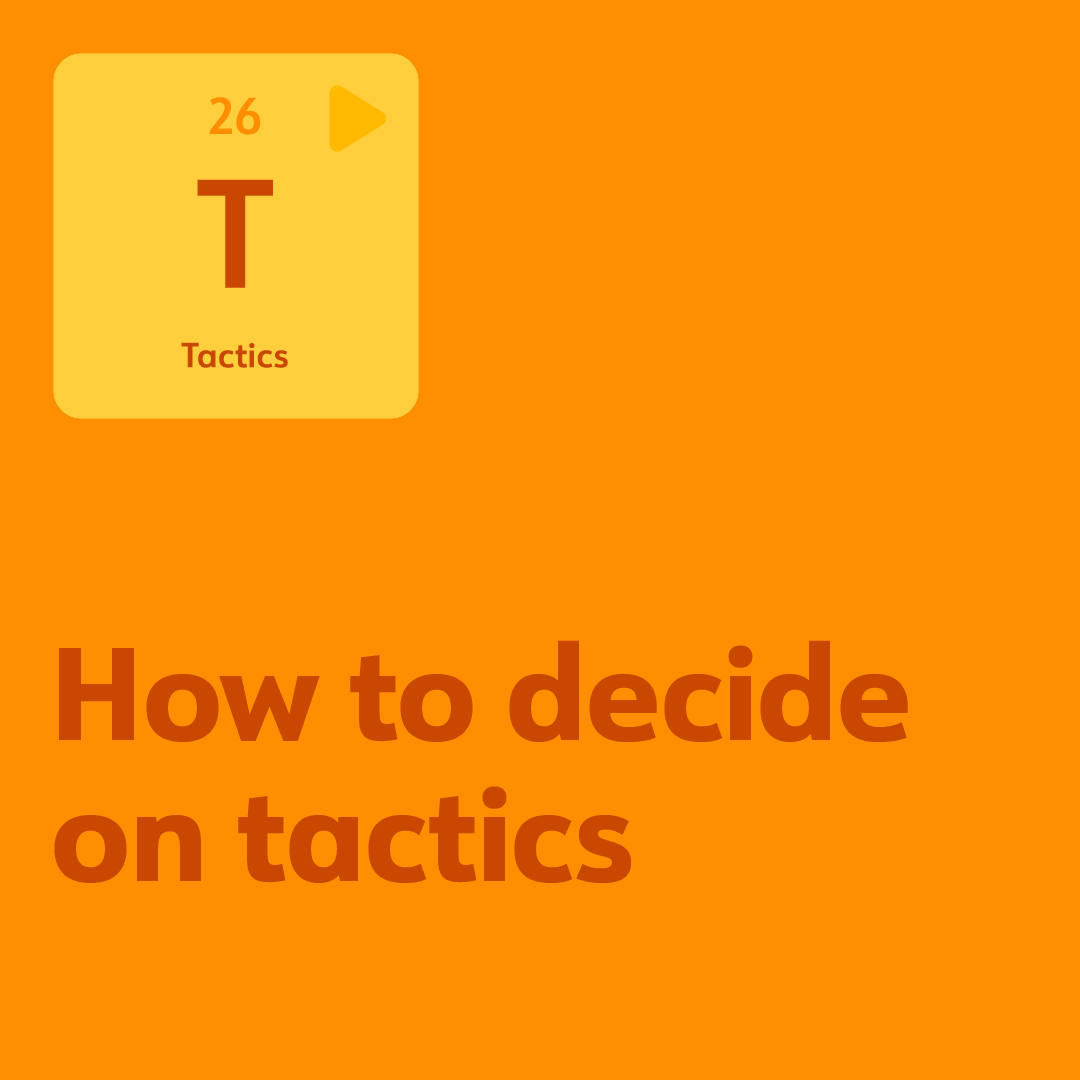
Research
The first step to find your position is to research competitors. Start by making a list of direct competitors and indirect competitors. Look up how they are different to one another, not only in product/service-specifics but in appearance, tonality, and attitude.
Differentiate yourself with words
List words associated with your brand. Group words together with different similarities or qualities. Filter out the words that don’t separate you enough from your competitors.
Map it out
Create combinations of the words in a positioning diagram. Choose a combination of two words and apply the words on the X and Y axes and place your brand in the top right corner. You want to own this top space because these values apply to you. Write down your competitors according to this scale. The goal is to have everyone far away from the top right corner. If a competitor is too close you need to choose another combination of words, otherwise you both will loose. Once you have a combination that is free from all competitors, try to find a word that describes both the X-word and the Y-word. What do those two create together? That word is your position! You can now formulate a profitable, available, and logical Positioning Statement:
We are the most ____________________ company/brand/choice/option on the market.
These last steps might need to be repeated a couple of times to get the best result that is Profitable, Available and Logical. By being “The Most….” you will have a key that can continuously be developed and improved to maintain you position and that no competitor will ever get close to.
Warning! There is a tendancy to focus on product features and benefits in this exercise. The product is a part of the brand but as mentioned earlier, this exercise is not about comparing products and their features. We are comparing brands!



